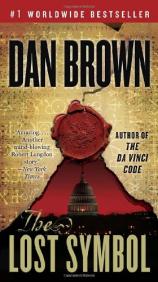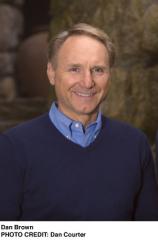Reading Group Guide
Discussion Questions
The Lost Symbol

1. How familiar were you with Freemasonry before reading the novel? How did your impressions of the organization shift throughout the book, from the chilling prologue to Peter Solomon's philosophical comments near the end?
2. How do Peter Solomon's students (including Robert) reconcile their admiration for him with the knowledge that he is a Mason? Did it surprise you to learn about well-known American historical figures who were Masons and to read about scientists who were intrigued by mysticism and other occult belief systems?
3. Discuss the novel's grand theme of architecture. How did The Lost Symbol change the way you think about the way buildings are designed and the intention of their architects (creators)? What most surprised you about the tributes to the past—and visions of the future—that are captured in the landmarks of Washington, D.C.?
4. Mal'akh considers the polarity of angels and demons noting that "the guardian angel who conquered your enemy in battle was perceived by your enemy as a demon destroyer." What does this indicate about Mal'akh's perception of himself in the world? How can his evil nature be explained? Why is he only able to consider his own suffering, while relishing the suffering of others?
5. How did you react to Katherine Solomon's work in Noetic Science? What motivates her to investigate the tangible aspects of the human soul (attempting to weigh it, even)? How would it change the world if there were more tangible evidence of the spiritual world? How is Katherine Solomon's perception of science different from Robert Langdon's?
6. At the heart of the novel is a quest to unlock wisdom, and the need to keep it "locked" because it can be used for destructive purposes. Do you believe that freedom of knowledge (Wikipedia, a world wide web) is a blessing or a curse?
7. The novel's epigraph, from Manly Hall's The Secret Teachings of All Ages, encourages readers to become aware of the meaning of the world. What mysteries about the world, and life, do you think are the most important ones to explore?
8. How did Mal'akh amass enough power to turn his personal plot into a national security threat? What does his rise to power indicate about the potential of mind over body and a human being's ability to play a variety of roles for unsuspecting audiences?
9. The final chapter raises intriguing questions about the possibility of a multi-faceted God and the potential to find God in all of humanity. Can there be a universal definition of enlightenment?
10. While interpreting the Masonic Pyramid's final inscription, Robert Langdon tries to bring order out of chaos by interpreting each symbol as a metaphor. Peter Solomon instructs him to be literal and accept the inscription as a true map. What does this exchange say about the best way to interpret all sacred messages?
11. What truths do Katherine Solomon and Robert Langdon experience in the epilogue, at sunrise, atop America's ultimate symbol? From your perspective, what does the Capitol symbolize?
12. What does The Lost Symbol indicate about the power of the Word—both ancient texts and bestselling twenty-first-century novels?
13. What common thread runs through this and each of Dan Brown's previous works? What makes The Lost Symbol unique? How has Robert Langdon's perspective changed from Angels & Demons and The Da Vinci Code?








